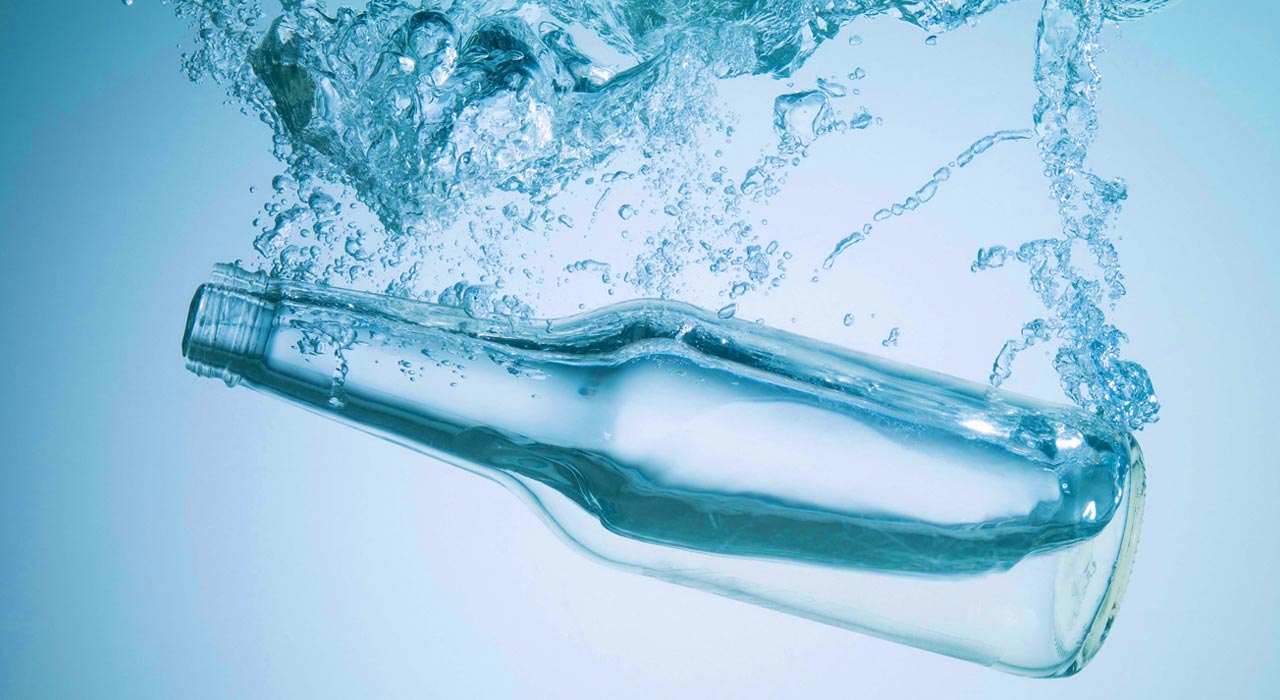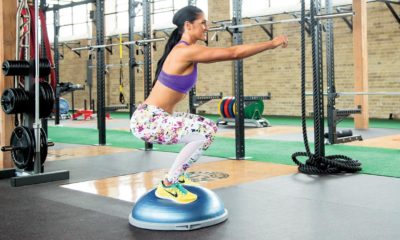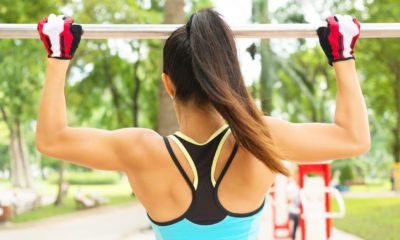Health
Are You Hydrating Properly?
How much water do you really drink? Think carefully. A couple of glasses of juice or soda and the odd cup of coffee sound about right? No matter what your poison, chances are most of us just aren’t reaching the hydration levels we should be – and we’re harming our bodies as a result.
The human body is made up of roughly 60% water and we cannot last without this life-giving fluid for more than 100 hours. So, you see, water is a pretty big deal.
Just a few of its duties include regulating your temperature, protecting sensitive tissues, lubricating and cushioning joints and getting rid of wastes through urination, perspiration and bowel movements.
How much water should you be drinking?
The National Academies of Sciences, Engineering, and Medicine state that an adequate daily fluid intake for men is 3.7l and 2.7l for women. Before you look in horror at the 500ml bottle of water you bought at the store and try to calculate how many of those you’d need to drink to reach this statistic, remember these recommendations cover fluids from water, other beverages and also food. In fact, according to the Mayo Clinic, about 20% of daily fluid intake usually comes from food and the rest from drinks.
This brings the optimum average volume to 2l of water a day. In line with this, The Big Bottle Company, creators of 2.2l water bottles, commissioned a hydration survey, in association with St Mary’s University, Twickenham, in the UK, to find out what the real benefits of ensuring a healthy water intake each day are.
The Big Bottle Company has created 2.2l water bottles in a range of exciting colors and finishes.
The research, involving 100 male and female Londoners, representative of a wide range of ages and lifestyles, took place over 24 hours. Participants were asked to do a home urine test and take a survey at 3pm on day one, then, over the course of the next 24 hours, ensure they consumed at least 2l of water before taking a second urine test and survey.
The results were impressive: 84% saw an increase in concentration levels, 81% perceived their energy levels to be higher, 36% stated their skin felt more hydrated, and 20% recorded improved sleep quality.
Additionally, urine test results were reported to be significantly better – meaning less strain on vital organs – and the participants said they felt significantly happier in their reporting for the second survey.
How can you prevent dehydration?
Prof John Brewer, the hydration expert who oversaw the research, told TRAIN for HER that the best way to make yourself drink more water is not by forcing it but by remembering to drink regularly.
“Most people find that drinking small amounts frequently works best. The best reminder to do this is by having a bottle of water nearby, and visually seeing how much you have – or have not – drunk,” Prof Brewer said. The advice to drink eight 8-ounce glasses of water a day is easy to remember and is a reasonable goal.
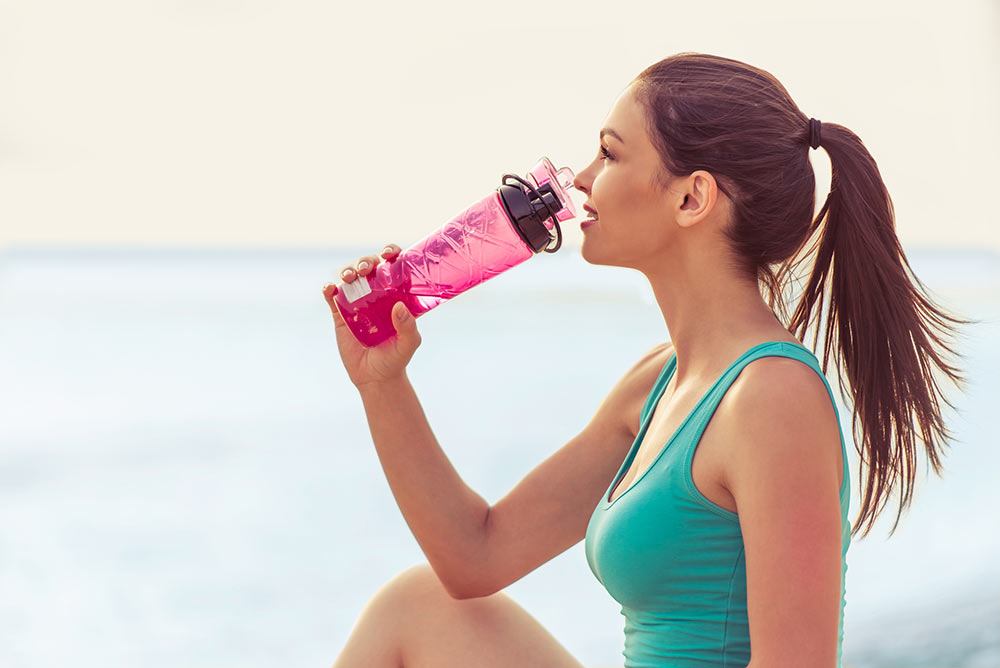
Your body relies on fluid to help the muscles and nerves to function properly.
So how do you know if you’re dehydrated? “Your body weight will be lighter than you would expect (even if you are on a diet!)” explained Prof Brewer, “and your urine will have a color that is darker than normal. Making sure you have a stable body weight, and a light, straw coloured urine, is the best way to check you are drinking the right amount.”
He continued: “Your body relies on fluid to help the muscles and nerves to function properly, and the evaporation of fluid from the skin – sweating – is one of the most important mechanisms the body uses to keep cool. This is particularly important in warm and humid conditions, or when exercising.”
– RELATED: This Is How Much Water You Should Be Drinking –
What are the dangers of dehydration?
If you don’t drink enough fluids when training and are perspiring heavily, you may sustain a heat injury, which can range from mild heat cramps to heat exhaustion or even potentially life-threatening heatstroke.
Further complications caused by dehydration include urinary and kidney problems such as urinary tract infections, kidney stones and even kidney failure. Seizures are a risk as electrolytes – such as potassium and sodium – become unbalanced so the electrical signals they carry from cell to cell can become mixed up. This may lead to involuntary muscle contractions and sometimes to a loss of consciousness.
The most serious complication is low blood volume shock (hypovolemic shock) which can lead to organ failure and be life-threatening. This happens when low blood volume triggers a drop in blood pressure and a plunge in the amount of oxygen in your body.
To prevent dehydration, the Mayo Clinic advises: “Drink a glass of water or other calorie-free or low-calorie beverage with each meal and between each meal. Drink water before, during and after exercise. Drink water if you’re feeling hungry. Thirst is often confused with hunger.”
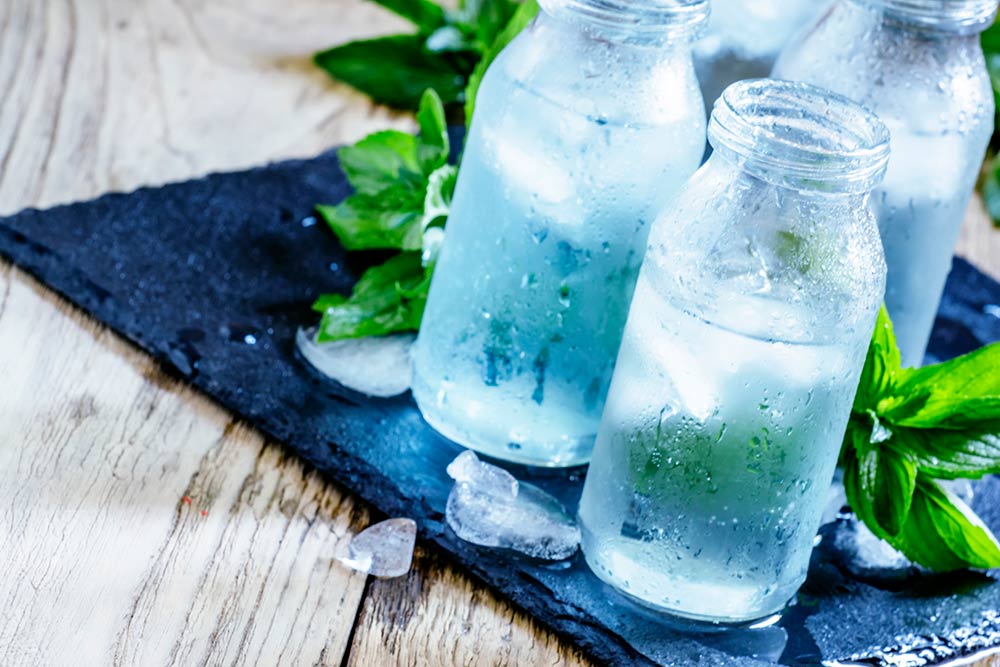
You should drink a glass of water or other calorie-free or low-calorie beverage with each meal and between each meal.
What can you drink to rehydrate?
If you find the idea of drinking glass after glass of water unpleasant, remember other beverages such as milk, juice and herbal teas are composed mostly of water. Caffeinated drinks, such as soda and coffee can also contribute to your daily water intake. Additionally, you can also jazz up plain water by infusing it with fruit or trying the sparkling variety.
If you’re drinking alcohol it may alarm you to know that every serving of alcohol (a shot of spirits, a glass of wine, a beer, etc.) causes you to lose, on average, 4oz of water as well as half of all the replacement fluid you consume over the following two hours. Therefore, it’s recommended that you alternate each alcoholic drink with a glass of water. You’ll thank yourself when you wake up without a blistering headache the next day!
The best thing about hydration is, of course, that you can get started straight away. Look into buying a giant bottle of water, such as The Big Bottle Co offer, to position on your desk or be extra vigilant with those eight glasses of water. Yes, you may have to dash to the bathroom more often than before, but hopefully the benefits you’ll notice outside and inside your body will make it worth it.
Want more health and fitness advice straight to your inbox? Sign up to the TRAIN for HER newsletter.


